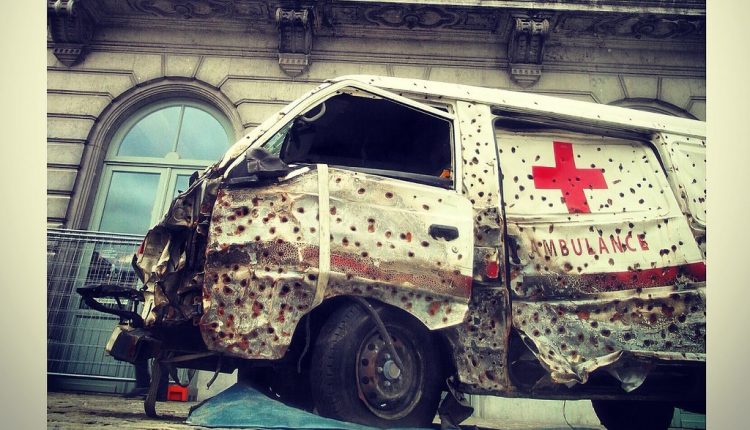
Armed conflicts - How to protect healthcare workers mantaining responsibility
The Lancet published a paper focused on the attacks that healthcare workers and paramedics throughout Africa have to face.
Global attention to unlawful attacks on healthcare workers and facilities
Including reporting on incidents and identification of the long-term consequences for the civilian population and the health-care systems of affected countries, the attention on attacks on healthcare workers and facilities has grown recently. But this attention has yet to translate into effective protection of health care on the ground.
Despite Resolution 2286 having been adopted by consensus, the threat or use of veto by one or more permanent members has too often frustrated the Security Council’s attempts to address serious violations of international humanitarian law (IHL). The failure to condemn and to follow through reinforces impunity.
Resolution 2286 is important on multiple levels. It reaffirms IHL centrality, as enshrined in the Geneva Conventions, applicable Additional Protocols, and customary international law, and demands that parties to armed conflicts fully comply with their obligations to ensure respect and protection of all medical and humanitarian personnel exclusively engaged in medical duties, their means of transport and equipment, and hospitals and other medical facilities.
What could be opportunities to reduce these attacks on healthcare workers?
We see many other opportunities for action. Accountability of all parties concerned is the cornerstone of implementing Resolution 2286. Multiple paths exist to accountability. States that support the norms of civilian protection and sanctity of health care can take crucial action and lead the way, notably by implementing relevant recommendations of the Secretary-General to fulfil the objectives of Resolution 2286.
Concrete steps include aligning domestic legislation with obligations under international law; training military personnel on protection of medical care in armed conflict; voluntary reporting on whether states are acting in accordance with Resolution 2286 regarding their own laws, practices, investigations, and accountability procedures; reporting on violations through relevant UN bodies as a mechanism to put pressure on perpetrators; assessing the potential risks that the transfer of conventional arms might be used to commit or facilitate serious violations of IHL; where national accountability mechanisms are insufficient or inadequate, ensuring that appropriate international accountability mechanisms are established, or existing international accountability mechanisms are utilised; and ensuring that health workers who adhere to their ethical duty of providing impartial health care do not face arbitrary arrest and prosecution, contrary to IHL.
There is further scope for UN action. Commissions of inquiry and other monitoring and reporting mechanisms should devote more attention to investigating unlawful attacks on health care. The UN Secretariat could explore the establishment of a mechanism for sharing good practices to advance protection of health care in armed conflict and facilitate the creation of an experienced team from UN agencies, including WHO’s Health Emergencies Programme, civil society, and non-governmental organisations, and academia, to improve the process of training, documenting, and following up on unlawful attacks on the health sector. Finally, as Resolution 2286 calls for, the Secretary-General should report to the Security Council situations where delivery of medical assistance to populations in need is being obstructed by parties to the armed conflict and should report actions taken by parties and humanitarian agencies to prevent violations, and actions taken to identify and hold accountable those who commit such acts.”
READ ALSO
SOURCE


